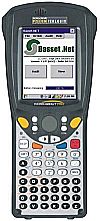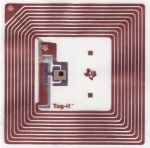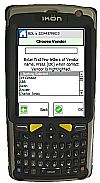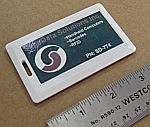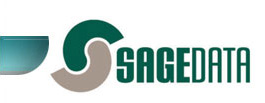Introduction
Our mission at SageData is to help our clients manage their stuff - from fixed assets to consumables. In this section we talk about the decisions that need to be made to manage inventories effectively, and what information is needed to ensure that the best decisions are made. The various steps of the material management process include purchasing, receiving, deployment, inspection, maintenance, retirement and return or disposal. Additional functions can include issue and return, loan management, and of course housekeeping activities such as inventory counts and fixed asset audits. In the following sections we will address these issues, and show how our systems can help you make the best management decisions.
Procurement
The first stage of any material purchase is the determination of requirements. Our system provides a complete inventory, for both fixed assets and consumable items. Knowing your current holdings prevents "overbuy". For fixed assets it helps ensure that existing items are redeployed effectively. In managing consumable stores, an accurate knowledge of current holdings can help prevent stock out situations.
Receiving
By automating the receiving process we can ensure that data is collected quickly and accurately, and that it can be available in a timely fashion to all interested parties. Defective materials can be identified, and appropriate recovery action quickly implemented. And accuracy of data collection can help avoid over-payment of short shipments, and avoid administrative waste in pursuing "phantom" problems, such as when an apparent short ships is reported in error.
Deployment
The deployment of fixed assets can be tracked and managed effectively. Preparation, such as loading software to IT equipment can be confirmed and tracked, essential for supporting QA porgrammes such as ISO9001.
Issue
For a stores situation, such as a tool crib where consumable items are issued with no expectation of return, the system can provide information on usage by individual, by project, or by season. Future usage can sometimes be predicted and assist in avoiding stock out situations - especially important when supporting 7/24 operations, where the loss of a spare part can cost dollars per second. The software can assist the managers to steer the best course between overstock on one hand, and stock out, on the other.
Inspection
Our tools can guide inspectors as they identify individual items to be inspected, and follow a sequence of questions specific to each items. Data is collected at the point of inspection, with no need for future data entry, which ensures that all information is available to all interested parties in a timely fashion (count seconds or minutes). And this information not only identifies inspections that were done, and issues found, it also identifies inspections not performed on schedule. This is an essential tool where compliance is an issue for safety reasons, such as within a nuclear facility.
Maintenance
Maintenance comes in two flavours, scheduled and unscheduled. Scheduled maintenance is similar to inspection in that it can be planned ahead. Unscheduled maintenance is a response to an unexpected failure, and can occur at any time. In both cases, management need information on the cost of maintenance which includes both labour and materials. The systems permit trends to be examined to determine if maintenance costs are drifting (which can be up or down) over time.)
Disposal
For fixed assets, specific disposal processes are usually required, in this case more for financial reporting than for operations. But "end of life" activities often require detailed planning. This is particularly true for equipments which must be returned on a fixed schedule at end of lease.
Stock Levels
One of the key issues for good inventory management, especially for large volume consumables, is to maintain the optimum balance between low stock levels (which lead to the danger of stock out situations) and excessively high levels of stock holding, which represent a poor use of finance, and can lead to waste if materials become stale dated or obsolete. Our systems can provide historical information to help predict future usage, and so aid in setting optimum stock levels.
For more information...
SageData is based in Ottawa, Ontario, Canada.
We design systems around RFID, Barcodes and Handheld computers.
For further information, contact Doreen Wallace or Keith Jackson.
To reach us by email, click here.
To reach us by phone from Ottawa, dial 613 225 4404
To reach us by phone from outside Ottawa, dial 1-888-838-1067
SageData . Ottawa . Ontario . Canada
QAP


